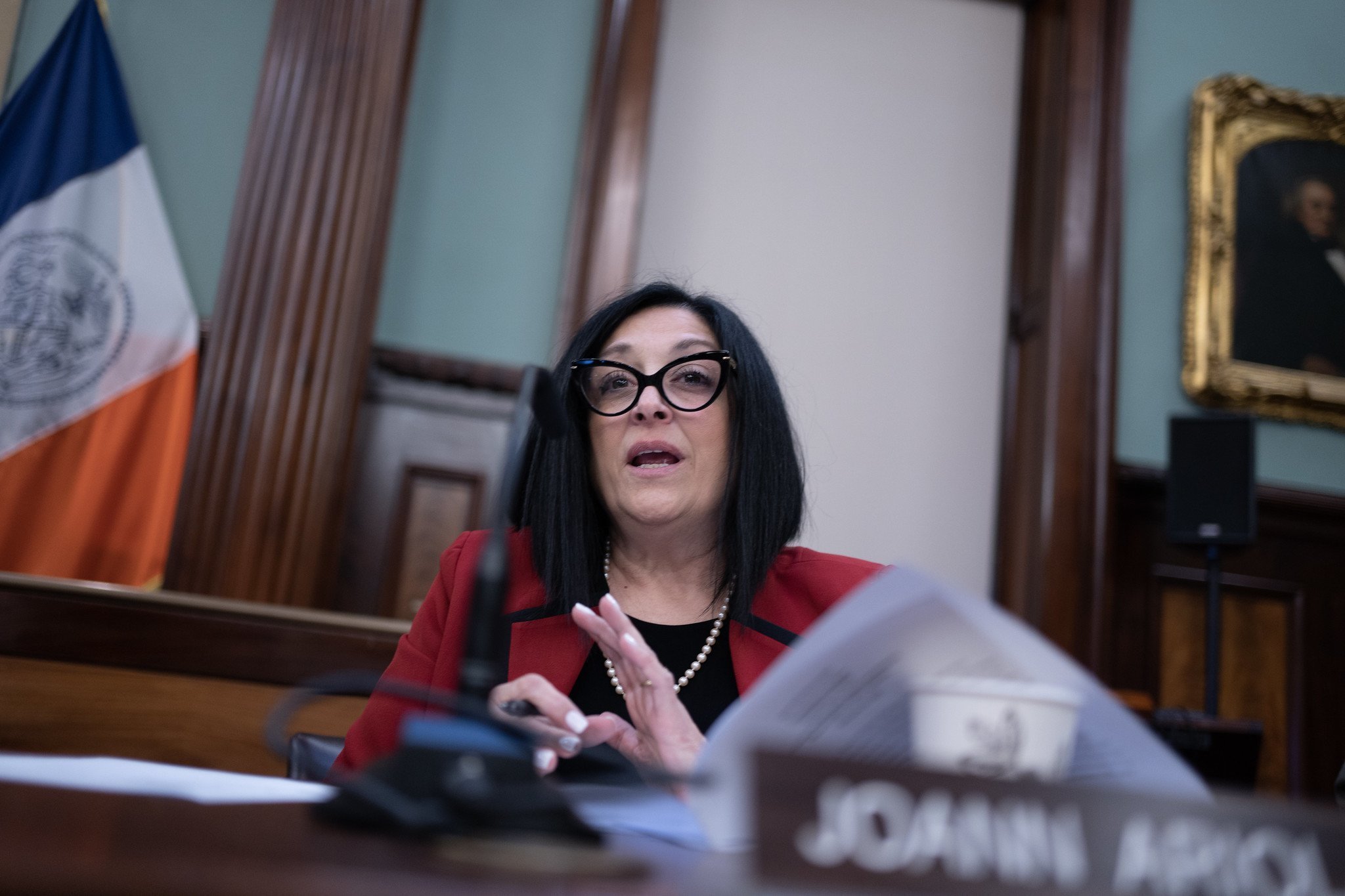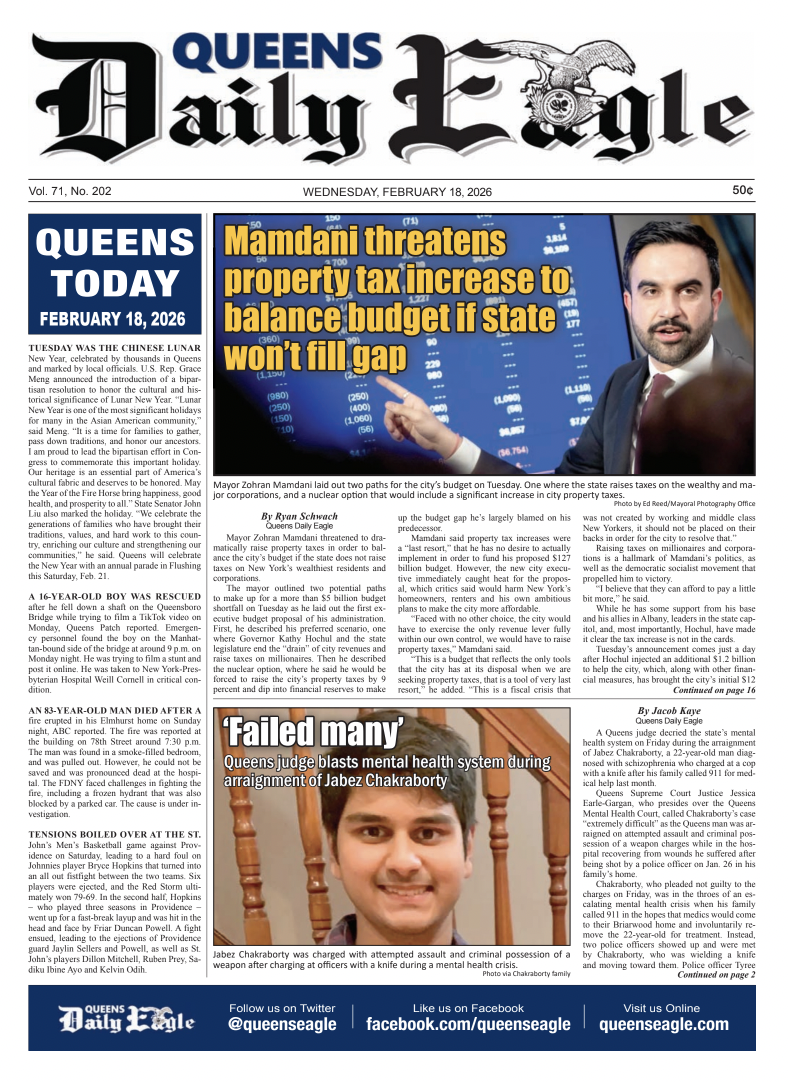Opinion: Vote ‘no’ on Proposition 1
/City Councilmember Joann Ariola. File photo by William Alatriste/NYC Council Media Unit
By Joann Ariola
This November, New Yorkers will vote on Proposition 1, a constitutional amendment with the potential to dramatically change life in our state. At first glance, Proposition 1, also called the “Equal Rights Amendment,” looks like it’s simply an expansion of New York’s civil rights law, seeking to add protections for categories like gender identity, sexual orientation, and reproductive healthcare to our state constitution. This might sound good on the surface, but voters need to carefully examine this proposition’s broader implications, and understand what is really lurking behind its flowery title and optimistic wording.
One of the primary arguments that supporters make in favor of Proposition 1 is the need to safeguard abortion rights in light of the United States Supreme Court's decision to overturn Roe v. Wade. But this claim is misleading. New York State already enshrined the right to an abortion in its legal framework with the Reproductive Health Act of 2019, which codifies the protections once offered by Roe v. Wade.
Under New York's Reproductive Health Act (RHA), abortion is explicitly legal up to 24 weeks of pregnancy, or beyond if the woman's health or life is at risk, or if the fetus is not viable. This means that, in practice, abortion rights are already protected without the need for Proposition 1. The law as currently written states: “Every individual has the fundamental right to choose or refuse contraception or sterilization, and every individual who becomes pregnant has the fundamental right to carry the pregnancy to term, to give birth to a child, or to have an abortion” (N.Y. Pub. Health Law § 2599-AA).
This comprehensive protection raises the question: if abortion rights are already safe, why is this amendment necessary? The truth is, it’s more about politics than protecting rights. By using fear over abortion access as a rallying cry, proponents of Proposition 1 are driving voter turnout to push their political agenda.
Another key issue with Proposition 1 is how it affects privacy and safety in female-only spaces, such as bathrooms, locker rooms, and shelters. The inclusion of "gender identity" in the amendment could force schools, gyms, and public facilities to allow biological males who identify as female to access spaces traditionally reserved for biological women. For many women and girls, the presence of biological males in these spaces raises legitimate concerns about privacy and safety.
We need to consider the experiences of women and girls who may feel uncomfortable or unsafe sharing intimate spaces with biological males. This is not about intolerance; it’s about recognizing the importance of female-only spaces where privacy and dignity can be maintained. Proposition 1 fails to address these concerns, instead prioritizing an overly broad definition of gender identity that leaves no room for privacy or safety considerations in female-only environments.
Similarly, by enshrining gender identity and expression into state law, we are also opening the door for assigned-at-birth males to compete athletically against females in areas that have been specifically created to be female-only. Biological males, on average, have physical advantages over females in terms of size, muscle mass, and strength, especially in competitive sports. According to a United Nations study that was presented to the UN General Assembly earlier this month, more 890 medals in 29 different sports have been won by transgender athletes competing in a female category.
Each one of those 890+ medals represents a little girl’s dreams dashed. Each one of those medals represents a woman who has worked hard who whole entire life being deprived of her goal by a biological male intruding into her space. Women pioneers had to fight incredibly hard to carve out a space for female athletes, and the passage of Prop 1 threatens to undo all of the work of our foremothers and put women in the backseat once again.
The vague wording of the proposition regarding gender identity and gender expression also has the potential to fundamentally undermine parental rights when it comes to a parent’s ability to make important and potentially life-altering decisions for their children. This open wording could create scenarios where public schools would be legally obligated to support a child’s gender transition without informing the parents, or in some cases even facilitating the transition against the wishes of the family.
Families must remain the central decision-makers in their children’s lives, not state institutions imposing ideological mandates. The language of this proposition paves the way for policies that bypass parental input, leaving parents powerless in key moments, and this is something that we all must be aware of and stand against.
Let me be clear: I believe that every New Yorker deserves to live free from discrimination. But respecting the rights of one group shouldn’t require another group to give up its fundamental freedoms and rights to privacy. Proposition 1 risks doing exactly that.
Respect and fairness must coexist—one should not come at the cost of the other.
This November, I urge you to turn over your ballot and vote “No” on Proposition 1. Let’s work together toward solutions that truly respect the rights of all people without sacrificing fairness and common sense.
Joann Ariola the councilmember representing Queens’ District 32 in the City Council.




